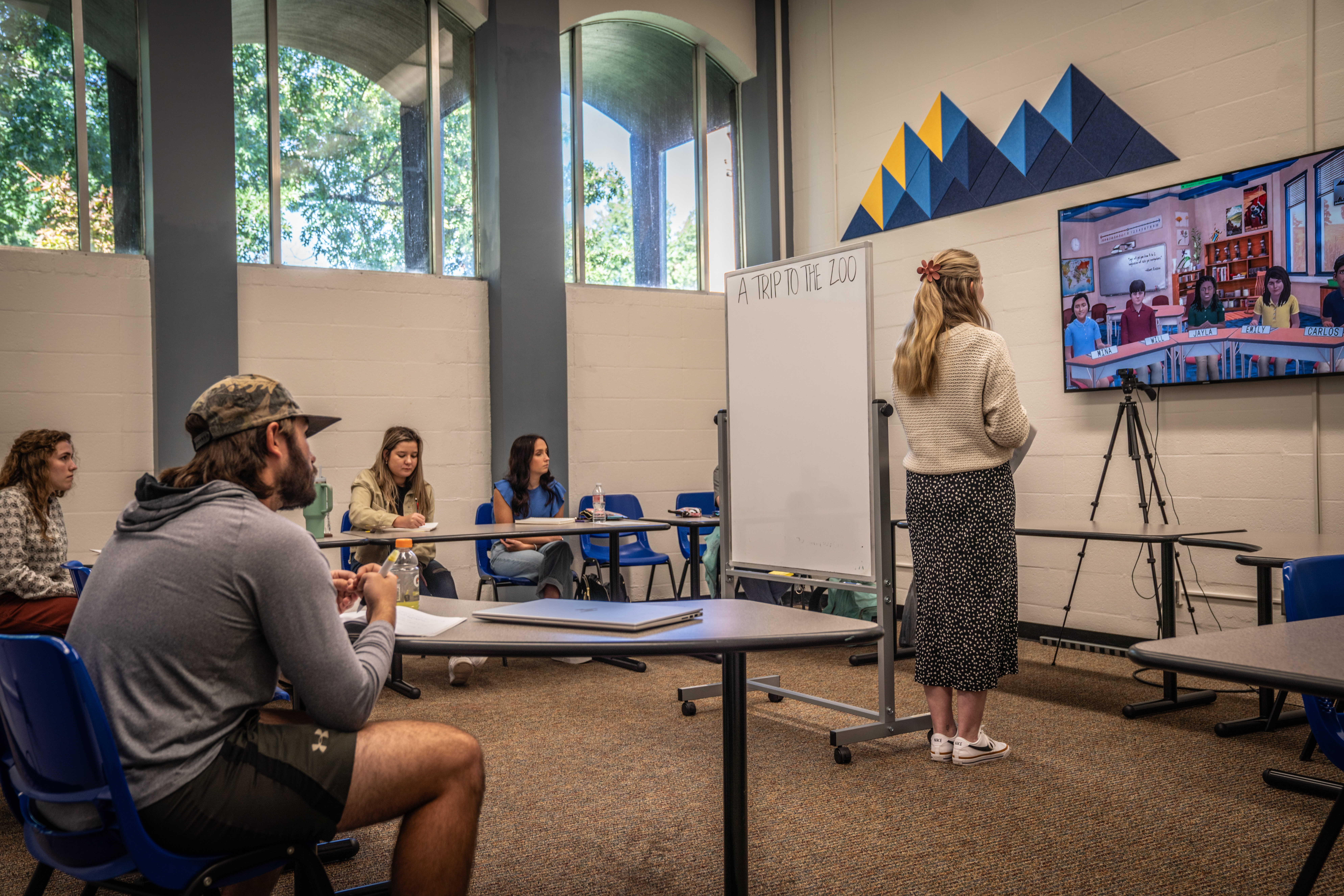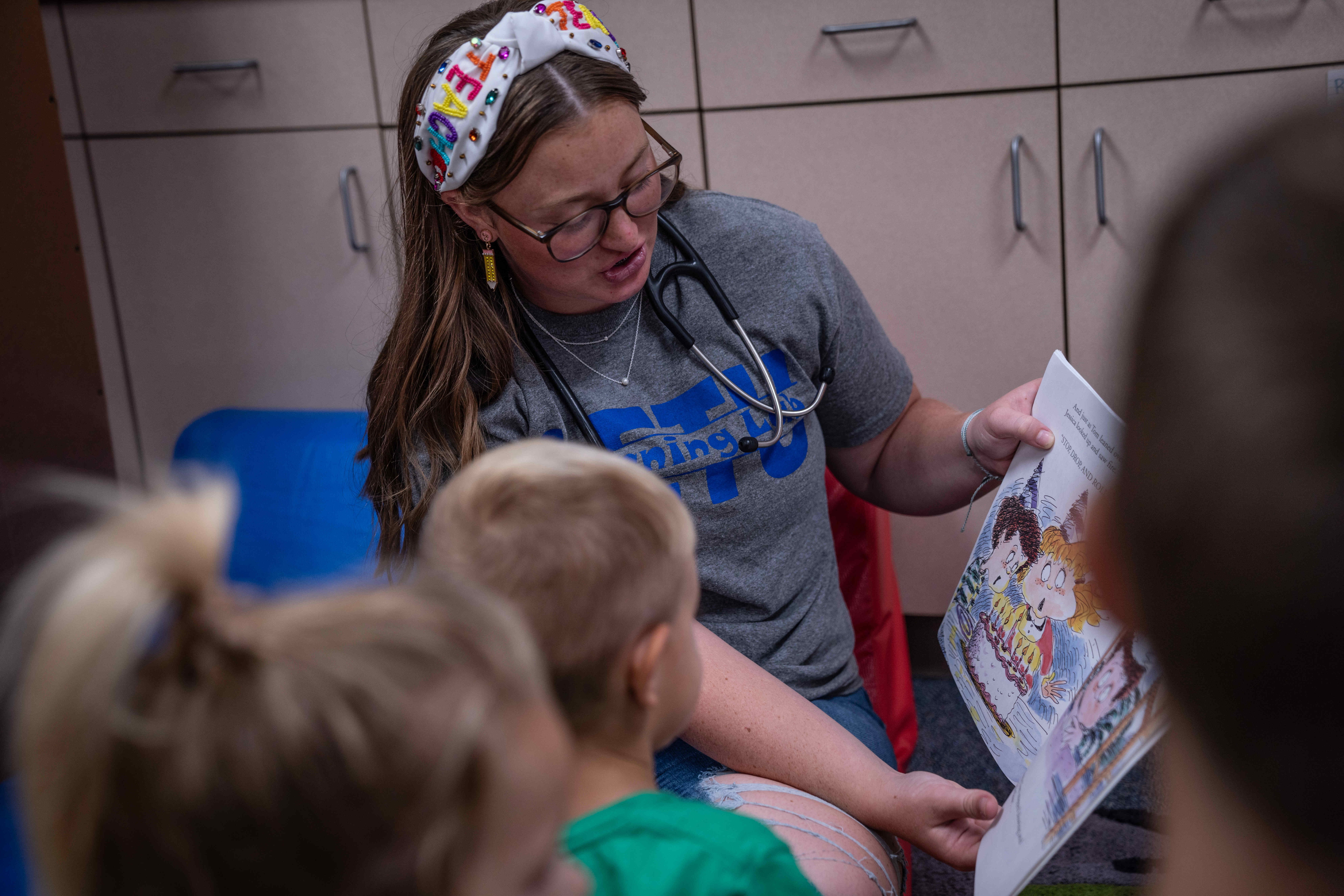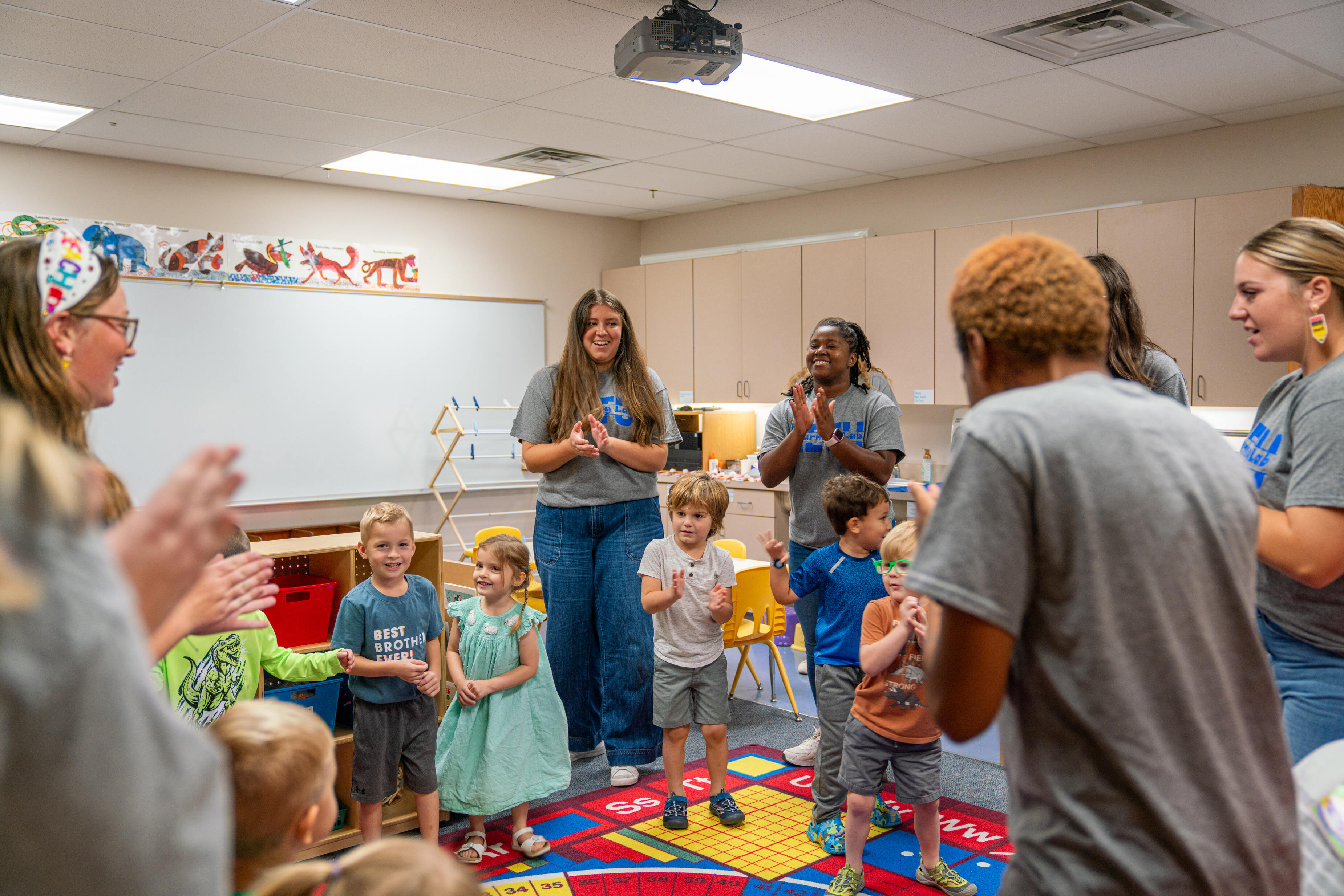By Shelby Ware, Ph.D, and Kate Day
Shelby Ware, Ph.D. serves as the Director of LeTourneau University’s Library & Archives and an Assistant Professor of Teacher Education. She recently received her Ph.D. in Learning Technologies from the University of North Texas and finds deep meaning in bringing her research interests in instructional systems and design, emerging technologies for learning, STEM education, and the application and management of technologies for various learning environments to life in the School of Education.
In her words: “I became a librarian because I saw how technology was changing the way we access information. I have long been fascinated with the history of journalism and the very beginnings of passing information through print. Now that technology has skyrocketed us past the Age of Textbooks and provided us with the capability to instantly access just about anything our heart desires, it in turn presents us with the question of how we responsibly manage information overload, screen-driven engagement, and the ways education practically functions in the future.
As a librarian, I am passionate about fostering intellectual curiosity, creativity, and growth by developing collections, facilitating access to information resources, and conveying the effective use of information and critical evaluation skills for lifelong learning. As a teacher, I get to layer in ways technology expands the possibilities of educational development and exchange. What an energizing thing, to increasingly extend this calling to the classroom—to thoughtfully and lovingly apply tech to teacher prep in ways that further engage the minds of future generations.
The application of technologies that thoughtfully fosters human development thoughtfully fosters human flourishing. And at The Christian Polytechnic University, there is no greater aim when it comes to teacher preparation, but to wrap God’s love around our students—and by extension, their future students—as we respond to our culture’s technology obsession and reliance with biblical wisdom and stewardship. In doing so, we turn societal obsession into Kingdom opportunity, fully relying on God’s design to inform student development.”
Below, Ware speaks to this aim, and her perspective and insight regarding what goes into building the classroom of the future:
Technology advancements have long impacted teacher education preparation programs, requiring a culture of adaptability and innovation.
Historically, the printing press and accessibility of textbooks is considered the marker of technological innovation in education and serves as the beginning of transforming how we teach and how we learn. The 20th century brought about even more disruptors with audiovisual and computer technologies that extended learning beyond the walls of the classroom and enhanced pedagogical practices to customize the learning environment. The pace of innovation in the 21st century has been driven by collaboration and personalization tools.
Traditional Education, Disrupted
As the emergence of a wide variety of technologies, such as augmented reality and artificial intelligence, continues to disrupt traditional practices in the classroom, it is critical for preservice teachers to gain technology-rich experiences throughout their coursework and field experiences. This requires a “programmatic shift” in the approach on how faculty incorporates technology in meaningful and transformative ways.
Tech-Infusion: The Demand & Response
The U.S. Department of Education Office of Technology recognized the need for change in how we prepare future teachers and challenged teacher preparation programs to model appropriate uses of technology tools to support learning so that new teachers come into the classroom fully prepared without requiring remediation.
Within the School of Education at LeTourneau University, faculty champion technology infusion so that we motivate and train future educators to be fluent users of technology; creative and collaborative problem solvers; and adaptive to make learning happen in any situation and environment. This requires a collaborative effort between faculty, field supervisors, mentor teachers, and school administrators. It begins with a program-wide effort to incorporate technology throughout the entire curriculum.
Faculty members model various applications and strategies within their courses such as learning management systems, communication tools, productivity/graphic design apps, and interactive presentation and assessment apps.
Foundational Skills
Preservice teachers gain foundational skills in a stand-alone course as they complete project-based, hands-on learning activities to develop their technological, content, and pedagogical knowledge for content areas, assessment, assistive technologies to meet the needs of diverse learners, classroom management, and professional development.
 They gain experience in how to operate and utilize various equipment including document cameras, interactive touchscreen smart boards, 2D/3D printing, and augmented/virtual reality. Most importantly, all preservice teachers are required to practice teaching with technology throughout the program in their courses and field experiences.
They gain experience in how to operate and utilize various equipment including document cameras, interactive touchscreen smart boards, 2D/3D printing, and augmented/virtual reality. Most importantly, all preservice teachers are required to practice teaching with technology throughout the program in their courses and field experiences.
Classroom-Proven, Industry-Ready
Field experiences also provide preservice teachers the opportunity to observe meaningful implementation of technology by experienced inservice teachers. Our preservice teachers get this experience early on beginning their freshman year. By the time they get to their third year, they should have ample opportunities to practice technology integration in the classroom, working directly with students.
This allows the connection and application of theories and concepts learned in coursework to real-life, practice-based learning with the supervision of a mentor teacher. School district administrators with strong technology leadership help guide and shape program efforts in equipping preservice teachers to be tech-ready upon graduating as they serve on advisory committees and provide access to capable mentor teachers.
In their final year of clinical teaching, our students utilize the mixed reality simulation software, Mursion, to gain valuable practice in a low-risk setting with professor and peer feedback in teaching content, building rapport with students, maintaining classroom management, conducting a parent/teacher conference, and practicing job interview skills.
Exposure-Expanding Partnerships
Faculty also look for collaborative partnerships on campus and within the local community to provide preservice teachers more exposure to technology-rich experiences. On campus, preservice teachers have utilized the Maker Lab to use engineering software and tools to build butterfly habitats as well as providing instructional design support in a machine learning competition hosted by engineering faculty.
The Region 7 Education Service Center graciously provides workshop opportunities and training support on various topics to increase their impact in the classroom and network with local inservice teachers and administrators. Eastman has been a long-time valued partner as they equip our students with hands-on learning strategies and curriculum with Project Learning Tree. These partnerships help facilitate and shape our preservice teacher’s perspective on participating in a tech-driven society as professionals in the field.
Teacher Prep at TCPU
Preparing future teachers to be fully equipped to navigate the disruption of technology advancements is shaped by the biblical narrative and mission of LETU as The Christian Polytechnic University. In all aspects of how our preservice teachers are trained, we focus on human flourishing, stewardship, and responsibility of how technology is used effectively and ethically in the classroom as image bearers of Christ.
Understanding God’s creation and innovative designs greatly influences how one approaches and values the use of technology. Isaiah 54:16-17 shows us how God governs technology and human innovation.
The Role of Christian Educators
As educators embark on new terrain with artificial intelligence on the rise, it is our goal to ensure our preservice teachers understand their role as Christian educators as they think about creative solutions and innovative practices to enhance student learning and develop their character with intentional opportunities to discover God’s authority, wonder, and grace, wielding our faith and reliance on Him in all that we do.
One of the greatest callings is to be a teacher—the profession that creates all other professions. Together, School of Education faculty and preservice teachers are building the classroom of the future.
